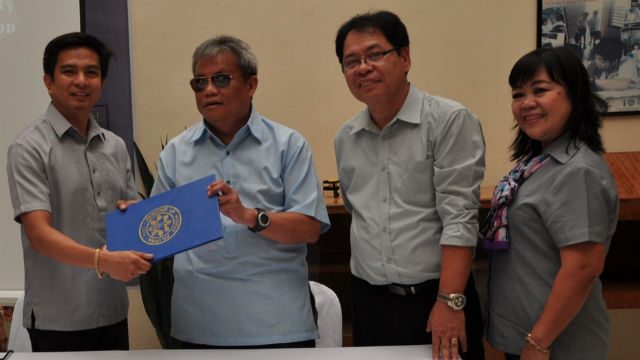SUMMARY
This is AI generated summarization, which may have errors. For context, always refer to the full article.

This is a press release from the National Council on Disability Affairs.
QUEZON CITY, Philippines – To increase public awareness and better understanding of the country’s laws on disability, the National Council on Disability Affairs (NCDA) forged a partnership with the Commission on the Filipino Language (CFL) to translate disability laws in Filipino language.
In a turnover ceremony held recently, NCDA Deputy Executive Director Mateo A. Lee, Jr. received a copy of 3 translated disability laws from Dr. Benjamin M. Mendillo, Jr.,Chief of Translation Division of CFL.
The laws include:
- RA 9442 (An Act Amending Republic Act No. 7277, also known as the “Magna Carta for Disabled Persons and for Other Purposes”)
- RA 10070 (An Act Establishing an Institutional Mechanism to Ensure the Implementation of Programs and Services for Persons with Disabilities in Every Province, City And Municipality, Amending RA No. 7277)
- RA 10524 (An Act Expanding the Positions Reserved for Persons with Disability, Amending for the Purpose of RA 7277).
Also translated into the Filipino language was the Frequently Asked Questions (FAQs) of the United Nations Convention on the Rights of Persons with Disability (UNCRPD).
The CFL has been assisting government agencies and institutions in the translation into Filipino and other Philippine languages of historical works, laws, executive and legislative issuances, textbooks, and other reference materials in various disciplines for official purposes.
Lee thanked the Commission for its support to the project saying that “translating disability laws in Filipino would help the public, especially the PWD sector to better appreciate and understand their rights and privileges.” – Rappler.com
Add a comment
How does this make you feel?
There are no comments yet. Add your comment to start the conversation.